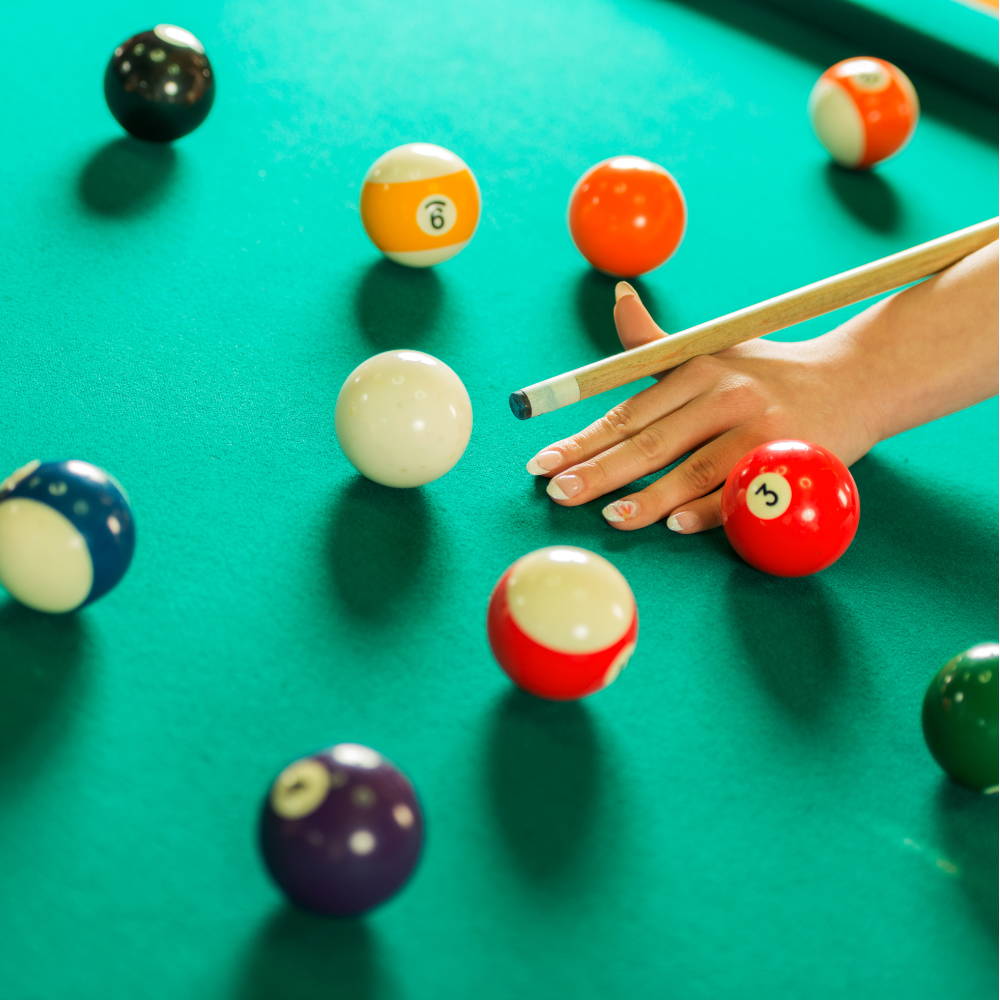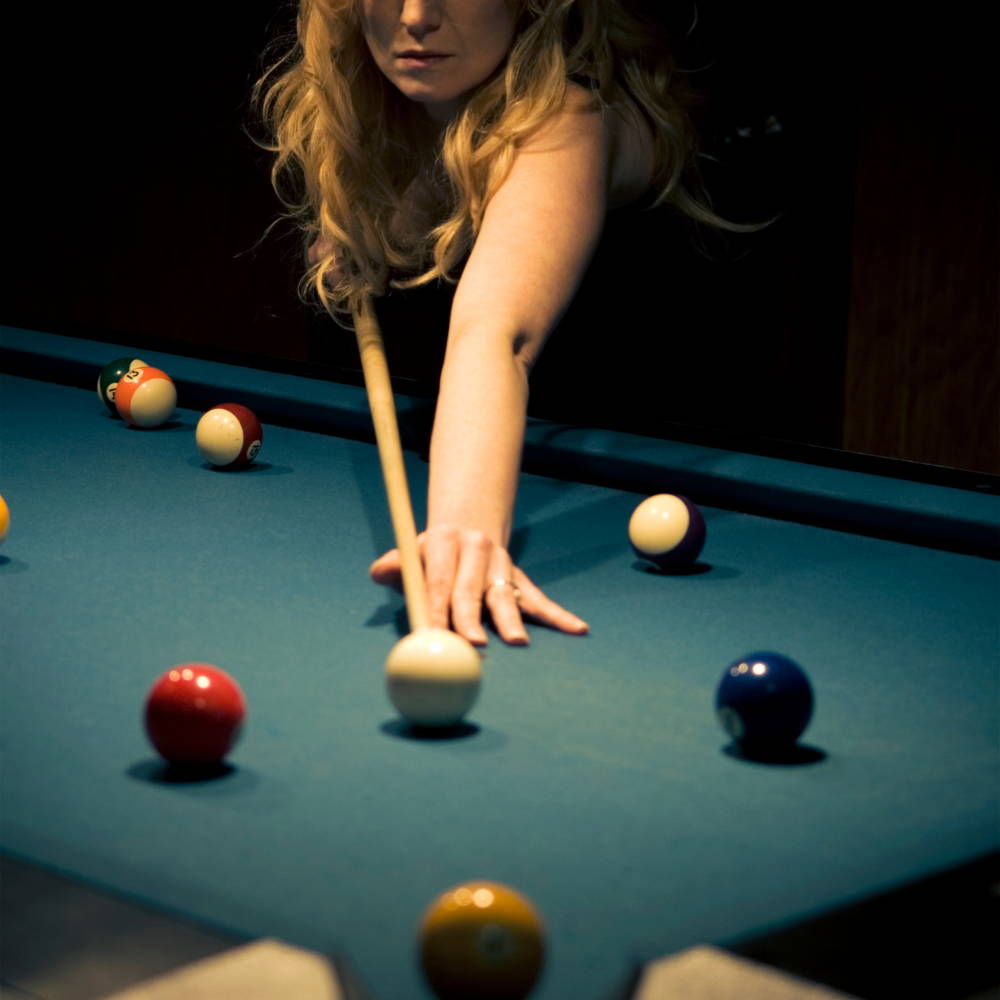Breaking Barriers: The Rise of Women in Professional Pool
A Historic Overview
For centuries, cue sports, like many others, were perceived as a predominantly male domain. Billiard rooms in mansions and smoky pool halls were often the sanctuaries of men, where business, politics, and leisure blended seamlessly. However, as with numerous other spheres, this male-dominated landscape has witnessed a transformative change with the rise of women in professional pool.
Early Forays into the Game
The initial involvement of women in pool can be traced back to the late 19th and early 20th centuries. While men played the game in public spheres, women engaged with it primarily in domestic settings. The ladies’ billiard rooms in elite households became spaces where women familiarized themselves with cues and balls, albeit away from the public eye.
The Pioneers
In the 1960s and 70s, a few brave women began to challenge the status quo. Players like Jean Balukas emerged as prodigies, showcasing talent and skill that rivaled, if not surpassed, their male counterparts. Balukas, in particular, stood out not only for her gameplay but also for her fierce determination to carve a space for women in professional pool.

Changing Perceptions and Institutions
The late 20th century witnessed the formation of dedicated associations and leagues for women. Organizations like the Women's Professional Billiard Association (WPBA) played pivotal roles in offering women the platforms to compete professionally. These institutions not only organized championships but also worked diligently to alter perceptions, emphasizing that pool was not a game of strength but one of strategy, finesse, and skill, where women could compete on an equal footing with men.
Redefining the Game
The influx of women into professional pool brought with it a fresh perspective. While the core of the game remained unchanged, the approach, strategies, and even the ambiance of tournaments underwent a transformation. Women introduced a blend of aggressive gameplay with a tactical acumen, a combination that drew fans and made matches intriguing.
Challenges on the Path
The journey wasn't devoid of obstacles. Many women faced skepticism, patronization, and even overt discrimination. Prize money for women's championships often paled in comparison to men's tournaments. Sponsorships were harder to come by, and media coverage was sporadic. However, through collective efforts, persistence, and undeniable talent, women began to break these barriers. They showcased that their prowess on the pool table was not a novelty but a testament to their dedication and skill.
Modern Mavens of the Cue
Today, the pool world boasts numerous women who have made their mark. Players like Allison Fisher, Karen Corr, and Pan Xiaoting have not only amassed titles but have also been ambassadors for the sport. Their matches attract viewership, their techniques are studied and emulated, and their stories inspire the next generation of players.
Inspiration Beyond the Table
The rise of women in professional pool is not just a narrative limited to the sport. It mirrors the larger societal shift towards gender equality. Every break, every pot, and every win achieved by these women sends a powerful message: the green expanse of the pool table, much like every other domain, is as much a woman's territory as it is a man's.

Future Prospects
As we move forward, the horizon looks promising. More and more women are taking up pool, not just as a hobby but as a profession. Training academies and coaches are recognizing and nurturing female talent. Media houses are providing more coverage, and sponsors are acknowledging the potential and profitability of women's pool.
The Cultural Impact of Women in Pool
Beyond the Game: Shifting Societal Norms
The ascent of women in professional pool isn't solely about breaking boundaries in the sport; it's emblematic of larger cultural shifts. As women made their presence felt on the green felt, they were simultaneously challenging deeply entrenched notions about gender roles and capabilities. Their victories weren’t just about securing titles; they were symbolic triumphs over societal prejudices.
Cues and Couture: Merging Elegance with Expertise
The entrance of women into professional pool also brought a unique elegance to the game. The sartorial choices, while maintaining the necessary comfort for gameplay, introduced a blend of style and sophistication. This fusion of finesse and fashion elevated the game's appeal, making it more accessible and attractive to a wider audience.
Role Models and Mentors
The prominence of women in pool has had a cascading effect. Young girls, watching these women conquer tables and titles, now had tangible role models to look up to. These professionals not only showcased the possibility of success in pool but also exemplified the virtues of hard work, determination, and sportsmanship. Many of these top players have also taken up mentorship roles, nurturing the next generation, ensuring that the legacy continues.
Media and Representation
As women began to dominate and deliver captivating performances, media coverage naturally expanded. Magazines, television broadcasts, and even film started to showcase women pool players, sometimes as central characters, like in the movie "9-Ball". This growing representation has been instrumental in normalizing the presence of women in arenas once deemed male-centric.
Economic Implications
With increasing viewership and interest, the economics of the game evolved. Brands, realizing the potential of aligning with women players, began to offer sponsorships and endorsements. The merchandise, from custom cues to apparel, saw an uptick in sales. Women's tournaments started garnering similar, if not equal, attention as men's events, leading to a more equitable distribution of resources and prize money.
Global Movements: The Story Beyond Borders
The rise of women in pool isn’t just a Western phenomenon. Across the globe, from Asia to Europe, women have been making waves in the sport. Countries like China and Taiwan have produced world champions, highlighting the universal appeal and acceptance of women in cue sports. International tournaments often feature a diverse set of participants, showcasing a global sisterhood unified by their love for the game.
Pool Halls: From Masculine Enclaves to Inclusive Spaces
One of the most tangible shifts has been in the ambiance of pool halls. Once considered masculine enclaves, these spaces are now welcoming and inclusive. Women, whether as players or enthusiasts, frequent these places, leading to a more diverse and enriched environment.

Concluding Thoughts
The journey of women in professional pool is a celebration of talent, resilience, and change. From the dimly lit corners of private billiard rooms to the spotlight of international championships, women have claimed their rightful place in the cue sports arena. Their rise serves as a reminder that with skill, determination, and a touch of class, barriers can be broken, perceptions can be changed, and history can be rewritten.
Are you looking for a Pool Table? check out our pool tables range Pool Tables





